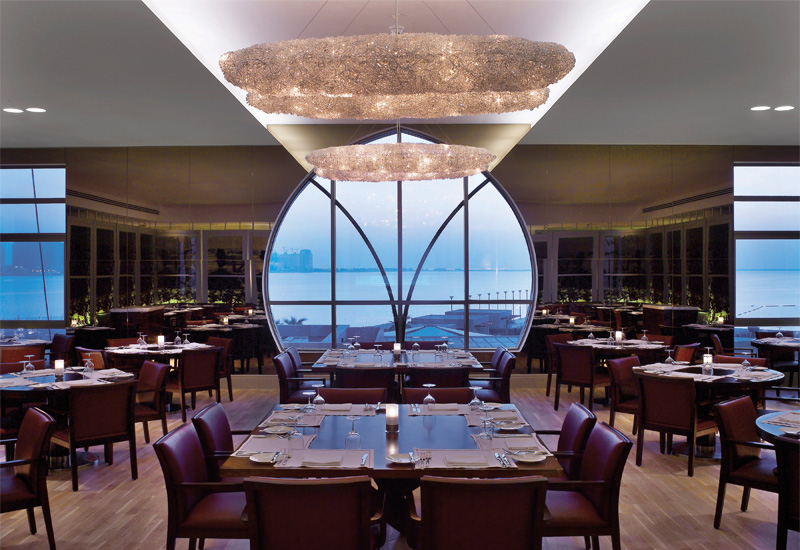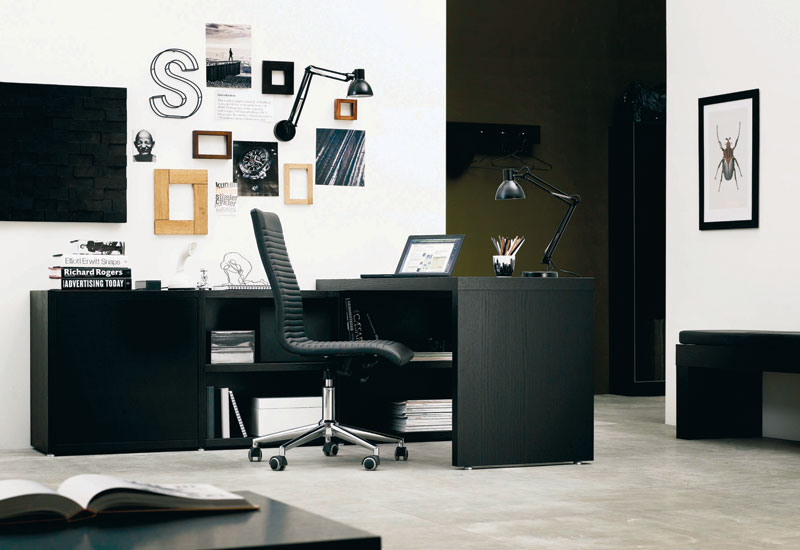 Rockwell Group created a scheme based on an English manor house with a modern twist for the Gordon Ramsay restaurant at St. Regis Hotel Doha.
Rockwell Group created a scheme based on an English manor house with a modern twist for the Gordon Ramsay restaurant at St. Regis Hotel Doha.
Lobbying Change
Both hoteliers and design professionals see the hotel lobby lounge as an area that is crying out for a design rethink. “The whole lobby experience in a hotel, and I’m thinking of the middle market in particular here, is just too laborious,” says Keane. “In most cases there’s just a big desk with people stood behind it trying to look important.
“If you think of a hotel as a home, you would never to have to stand at a desk being asked 101 questions. We live in a modern world now, surely the check-in process should be at the point of payment,” he adds.
Keane is currently working with a hospitality group on a new concept for its hotel lobby that introduces a bakery. “The lobby is often a dead space and what it needs is people; it needs activity and energy and the best way to introduce that is to bring food into the space – not some stuffy hotel coffee shop but something that’s alive with aromas, food, drink and people,” he elaborates.

| Advertisement |
This mindset is shared by the industry, it seems, and the conventional hotel lobby is being reinvented by hoteliers – Le Meridien’s new sociable Le Meridien Hub is one response to this change. In fact, ‘sociability’ and ‘interaction’ seem to be the buzzwords of the moment in the world of hotel design.
“In all our work there is a focus on creating environments where guests and visitors want to stay and occupy, to connect and share the moment,” adds David Rockwell.
“This has translated into the open, social gathering spaces in our design of the future Andaz Maui, the luxurious, crafted public areas in every W Hotel we have designed, and a general sense of celebration, connectivity, and engagement that we infuse in many of our projects, whether a hotel, restaurant, hospital, theatre set, or museum.
“Our lobby for Aloft hotels is a transformable space with modular, moveable furniture,” he continues. “During the day it serves as a meeting/work space and café. At night it transforms into a space for lounging and play. People can fold, flip down, and push furniture to create their own work or socialising micro-spaces within the lobby.”
Super Potato’s design for the Grand Hyatt Singapore also creates a “home away from home” that adapts to the needs of guests. “The space functions as a lobby lounge but does not look like a traditional lobby,” Shinya explains.
“It has the concept of a ‘residence’ so the lounge has an entrance foyer zoned into a library, living, dining and terrace, which not only operates as a lounge but has multiple functions providing a business centre or a place for afternoon tea that replicates the feel of a private residence. This creates a warm, friendly environment.”
Article continues on next page ...









 Search our database of more than 2,700 industry companies
Search our database of more than 2,700 industry companies









